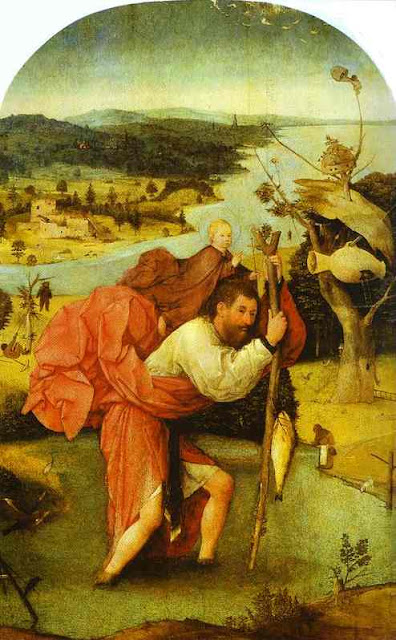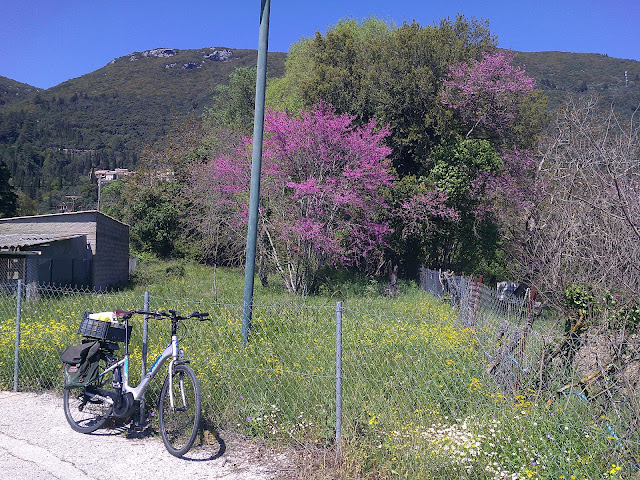![]() |
| Athens on Friday 19th Feb 2021. I had the Acropolis all to myself one rainy day in April 1958 |
So it's snowing in Greece - the dear country, the wondrous land. The woman, Xristoo, told me when I asked about the weather in Greece. She'd phoned me from Athens to try and sort out my 'customer problem' with Alpha Bank. My debit card was eaten by an auto-cash machine outside Corfu Green Bus Station two years ago, and though I reported it the same day, I've been trying to get a replacement since. We've been at our other home in Birmingham since December, in Handsworth.
![]() |
| A small incident on Soho Hill, gateway to Handsworth. A mile and half from Birmingham city centre |
'... down these mean streets a man must go who is not himself mean, who is neither tarnished nor afraid. He is the hero; he is everything. He must be a complete man and a common man and yet an unusual man. He must be, to use a rather weathered phrase, a man of honour - by instinct, by inevitability, without thought of it, and certainly without saying it. He must be the best man in his world and a good enough man for any world. He will take no man’s money dishonestly and no man’s insolence without a due and dispassionate revenge. He is a lonely man and his pride is that you will treat him as a proud man or be very sorry you ever saw him. The story is this man’s adventure in search of a hidden truth, and it would be no adventure if it did not happen to a man fit for adventure. If there were enough like him, the world would be a very safe place to live in, without becoming too dull to be worth living in.' Raymond Chandler 1945
In the last few weeks two people, one of them a 15 year old, have been murdered on roads near us - Linwood Road, Holly Road, and someone shot through a window in Antrobus Road a friend told us. “You don't make up for your sins in church. You do it in the streets. You do it at home. The rest is bullsh*t and you know it.” And everywhere in streets, on pavements, in nooks, crannies, frontages, rubbish and more rubbish. I've been working the allotment in my 'bubble' - so pleasantly cosy in the greenhouse when there's even a smidgin of sun.
![]() |
| A cup of tea in the warmth of the greenhouse on Plot 14, Victoria Jubilee Allotments, Handsworth |
I've been shopping, filling the capacious pannier of my bicycle with favourite things from the city markets - fruit, cheese, pastry, vegetables and the company of humans - where a stall sells bacon and egg sandwiches and a cup of tea, good for warming the hands. A capacious mask causes my glasses to steam up indoors so I wait near the door for temperatures - mine and the shops - to even, before buying wine, bread, milk and treats.
Someone driving fast down a back street didn't know he'd hit a cat and ended the ninth of its lives. Someone else picked up the broken body and dropped it in a wheelie bin, with other stuff they picked up, clearing litter. The bin was packed too high, seen as unacceptable by the bin-men, so it stayed un-emptied with other tipped rubbish beside it at the end of a Handsworth cul-de-sac.
![]()
Last time we did a clean-up that way, HHH volunteers emptied the bin, shovelled up the surrounding rubbish - leaving odds and ends for the circling scrap-metal kites. When we'd filled our transit van, the limp corpse was separated and buried in soil to feed the vegetables on our allotment, close to where we'd buried Oscar dog who died in August 2019 - after a far better life than this magpie cat. Since then Handsworth Helping Hands has been unable to do any of our usual work. Perry Barr Recycling centre is closed to charity waste disposal during lockdown, so we cannot carry out street clean-ups. We've kept up our presence on the social web - passing on warnings of on-line scams. local news, give-away items, information on Coronavirus, vaccination and testing locations... We've also been meeting with other local people sharing information about the problems of our area, talking with local politicians - on-line via ZOOM.
![]()
Cllr Sharon Thompson, Birmingham City Council's Cabinet member for Homes and Neighbourhoods (3rd line, 3rd from left above) asked us to submit evidence to the city's Scrutiny Committee who are looking at the impact of Exempt Accommodation on the inner suburbs. HHH's witness statement, prepared by Lin and I with help from our fellow committee members, was submitted just before deadline.
![]() |
| Lin gets briefed by someone managing a social housing association that strives for best practice |
A WITNESS STATEMENT FROM HANDSWORTH HELPING HANDS (HHH) ON EXEMPT ACCOMMODATION submitted to Emma Williamson, Head of Scrutiny Services emma.williamson@birmingham.gov.uk Thursday 18th February 2021
Our witness statement is based on family residence in Handsworth and Birchfield for over 40 years, and from 10 years working together as a small charity, Handsworth Helping Hands (HHH), carrying out environmental work, whole street ‘skip-it don’t tip it’ days, ‘green-up clean-up projects’, as well as a miscellany of services for vulnerable people in Handsworth, Birchfield. Lozells and part of Aston. As HHH’s work includes tasks on behalf of people in Houses in Multiple Occupation (HMOs), we do not mention names, addresses or specific streets.
![]() |
| Handsworth Helping Hands: our last meeting not on-line |
- What issues are faced in Birmingham by residents and agencies associated with exempt accommodation?
When it comes to examining their social impact on the life of the inner suburbs of Birmingham, we do not want the impact of HMOs not classed as ‘Exempt Accommodation’ to escape the attention of Scrutiny. We know Exempt Accommodation, managed by Registered Providers, is exempt from regulations and Local Housing Allowance caps that apply to HMOs, but, for the purpose of this statement, Exempt Accommodation and HMOs are in effect synonymous, creating similar issues for residents and other agencies such as the police, social and ambulance services.
‘Rachmanism’ was a term given in the 1960s to the exploitation of tenants of slum properties by unscrupulous landlords. Scrutiny members are now examining a problem that matches the social depravity of Peter Rachman, but one made worse by the complacency, even the support, of government - a messy, mostly unwilling, collaboration - blighting the social capital of Birmingham’s inner suburbs. By ‘social capital’ we mean those residents of an area who have roots in it, have lived there with their families, worked there, and have invested their time and their money in an area. They know the neighbours, know the local shops, take part in voluntary activity, send their children to local schools, attend public meetings, attend local places of worship. They may be defined as belonging to and sustaining a community, enjoying where they live, valuing the network of relationships that enables society to function.
The social capital of any one street might be measured by the capacity of the people who live in it to look after neighbours and be looked after by them. If the ratio of residents who constitute a street’s social capital, compared to those individuals living in Exempt Accommodation and HMOs, becomes imbalanced, as has happened in many streets in Birmingham’s inner suburbs, then what was once a neighbourhood with the resources, in partnership with local government services, to look after its most vulnerable neighbours, becomes a population of strangers.
As numbers of these categories of property increase in an area, eventually a tipping point is reached. Neighbours become overburdened with appeals for help from the vulnerable in their midst - requests for food, cigarettes, money, the use of their phones. They get tired of calling ambulances for people collapsed on the pavement, seeing drugs traded openly in the street, are vexed by pilfering of anything left in their front gardens, having their car doors tried, seeing police cars parked in their street, being kept awake by loud music late at night, or annoyed by it on summer afternoons. They despair at seeing bulky objects dumped in streets, at having to pick up rubbish spilling onto the pavement from over-filled bins, at bins being left unemptied by Fleet and Waste when recycling and household waste have been mixed. They become suspicious of strangers and worry about the safety of their children going to and from school or playing in the streets. The extra insult is to find that such concerns, when voiced as objections to an HMO conversion, are not acknowledged under planning law.
![]()
As family properties are converted for multiple occupation, the loss of accommodation for more stable residence negates the sense of place that is part of community. Houses for sale in Handsworth are visited by a queue of potential buyers interested in converting the property, initially to an HMO, with the possibility - in many cases the intention - of it later becoming Exempt Accommodation. Every decision by city planning services, to allow conversion of a family home to an HMO, has the secondary effect of driving from the area the last remains of the stable 'community of place' that could otherwise have supported lower numbers of transient residents, many of whom hardly know where they're living. Our elected members are seldom able to vote against officers''legal' recommendations.
When residents move in and out of Exempt Accommodation and HMOs, bulky objects and other belongings are abandoned on the frontages of properties, spilling onto pavements. Fly-tipping in the area becomes endemic, exacerbated by the activities of unlicenced waste collectors, who, for ‘cash-in-hand’ from a colluding landlord, remove beds, used mattresses and cut-rate furniture, and dump it close to where it was collected.
![]()
The transient tenants, who constitute our area's 'population of strangers', are, more often than not, uninformed, and, through such vulnerabilities as mental ill-health, drug dependency, alcoholism, learning or language difficulties, uneducable about waste disposal arrangements. Fly-tipping and littering become a chosen method of waste disposal. Waste collection and street cleaning services are made less effective. Streets become a wasteland, strewn with litter, bottles, piles of foul-smelling black bags filled with who-knows-what, soaking-wet carpets, old clothes and mattresses and mountains of broken furniture. The correlation between the character of this street environment and levels of crime and violence can’t be ignored. At this point, neither householders nor tenants of Exempt Accommodation and HMOs can be assured the same promise of ‘a good quality home and neighbourhood to live in’, made to social housing tenants in the government’s November 2020 ‘Charter for social housing residents’.
- Are City Council processes fit for purpose, sustainable, efficient or exacerbating any issues?
The Cabinet brief for Homes and Neighbourhoods should overlap the brief for Street Scene and Parks, in a way that gives attention to the connection between the social atomisation caused by too many HMOs and Exempt Accommodation properties, and the overwhelming of inner suburban streets by litter and fly-tipping. Other councils in the West Midlands – Coventry, Walsall, Wolverhampton, Sandwell - give greater attention to regulation and enforcement as these relate to permitting conversion to HMOs, issuing licences, registering accommodation as ‘exempt’ and monitoring the consequent required provision of extra support services.
Birmingham’s enforcement services have been skeletonised. Even with a recent, substantial grant from Government, a small number of conscientious council officers are hopelessly overburdened in checking for and dealing with breaches of HMO and Exempt Accommodation regulation and legislation in properties catering for approximately 18,000 tenants.
Birmingham’s planning portal offers advice to applicants in submitting applications to convert properties to HMOs and advice on how to respond if an application is refused, but is not correspondingly user-friendly for those submitting objections to such conversions, or reporting breaches of planning or building regulations by those doing the converting.
- Why do people use exempt accommodation?
Exempt Accommodation and HMOs offer a step up from rough sleeping to the homeless, the vulnerable, people struggling and failing to gain secure work or the income needed to rent or buy their own property; a social class, sometimes described as the ‘precariat’. One academic has referred to ‘generation exempt’. Tenants of Exempt Accommodation and HMOs include people unable to find work, people made redundant, ex-prisoners, people with mental health problems, struggling with addiction, escaping domestic abuse, people made homeless due to family break-up – a population of fellow citizens existing without predictability or security, with intermittent employment or underemployment, some trafficked as modern slaves.
- What are the drivers for landlords to enter into providing exempt accommodation?
Successive governments now rely on the private rental sector to provide accommodation for anyone unable to buy or rent their own home. Birmingham’s inner suburbs offer a lightly regulated zone for investment in private rental properties.
A scan of the internet reveals a national industry, promoting the financial gains to be made from HMOs, touting them as ‘investment opportunities’. Landlords are tempted into HMO investment through being able to take advantage of housing benefit rules, linking the rent they can claim to the number of bedrooms of the legally habitable size. This encourages owners of HMOs to increase the number of bedrooms in their properties, thereby increasing rental income, by subdividing rooms, or by adding extensions to properties, sometimes without obtaining planning consent, sometimes with false information being entered in planning applications.
The acquisition of ‘exempt’ status allows even higher financial gains to be made by unscrupulous landlords willing to commit what is essentially fraud.
To become ‘exempt’, a property must be leased to a ‘Registered Provider’, to be ‘managed’ by them, but not necessarily involving them in providing the extra services required for gaining exempt status. In some cases, the only ‘management’ involved may be dealing with the initial benefits application, receiving the enhanced benefits, and, after subtracting their charges, sending the landlord what remains.
It must be said that some Registered Providers give excellent service, ensuring that HMO standards, although not mandatory, are applied, that the extra services promised and paid for from the public purse, irrespective of whether they or the landlords arrange the provision of those services, are delivered, that the welfare of tenants is paramount. Unfortunately, however, even for Registered Providers managing many properties, this is not always the case.
The current Exempt Accommodation benefits system enables the exploitation of Exempt Accommodation tenants and of taxpayers, by both Registered Providers and landlords, by those among their number who claim to provide, but don’t necessarily deliver, the extra services necessary to enable vulnerable tenants to live with an appropriate degree of independence. In some cases, the only reliable ‘service’ is delivery of illegal drugs by local dealers.
The lack of legislation to effectively regulate the Exempt Accommodation sector stigmatises the social contribution of honest landlords and Registered Providers who, in running their businesses or not-for-profit organisations, offer conscientious support to their tenants and strive to maintain good relations with the community who live around their properties.
- What role can Planning legislation play within the confines of existing legislation and how can planning be used or amended to manage the growth of exempt accommodation?
If Birmingham City Council is to combine concern for the tenants of Exempt Accommodation and HMOs with concern for communities, steps must be taken to stop other local authorities diverting vulnerable people to Birmingham, into the regulated, but poorly enforced, HMO and the unregulated Exempt Accommodation sectors. At present HHH volunteers are struck by an impression of ‘lawlessness’ - a shameful failure to implement even existing planning law and building regulations, with many properties converted for multiple occupation without planning permission, where reported infringements of the most blatant kind are ignored, especially when a conversion is completed before those affected by it can query it, where council planners and building regulators fail to reverse illegal work, once completed. Such ineffectual planning regulation, applies to other services the local authority is supposed to provide for vulnerable citizens.
We also believe that the council’s database fails to reflect the actual numbers of legal conversions, let alone those erected or converted without permission.
Regulatory services are ill-staffed to cope with the challenge of enforcing the laws and regulations, as they relate to HMOs and Exempt Accommodation.
Although not, currently directly related to Planning legislation, housing benefit rules that enable landlords of HMOs and Exempt Accommodations to substantially increase profits, in some cases fraudulently, by sub-dividing and extending properties should be changed. If three-bedroom family homes could only be operated as three-tenant HMOs or Exempt Accommodations, they would quickly become less attractive to those landlords whose only interest is to maximise income, and would have the potential to be returned, eventually, to the family housing market.
- What are the health needs faced by this group of vulnerable people?
The worst health needs come from loneliness. An individual is given a transport fare to an unfamiliar address in a city they don’t know, lodged among strangers in a converted property, beside mistrustful and apprehensive neighbours. This isolation breeds ill health – physical and mental. Perhaps worst is the lack of political engagement. Handsworth’s famous group Steel Pulse - old men now - who many enjoyed in local places before they became famous in the late 70s, were signalling in their music and lyrics the troubles of the 1980s that made Handsworth nationally notorious, but also became associated with a multi-racial cohesion that continued almost into the recession of 2008.
Thousands of lonely men and women in HMOs hardly know they live in Handsworth, Birchfield, Aston, Holyhead or even in Birmingham. They have no engagement with the area or with one another; little impulse to rebellious creativity, political organisation or collective reaction to their condition. The harm of this condition is drug addiction, alcoholism, petty crime, theft from shops, homes and cars with the amplifying corollary of an atomised population of victims upon whom criminals can prey, trafficking people, encouraging drug pushing, dealing in weapons, fencing stolen goods and fly tipping.
- What can we learn from people’s experiences and best practice in other parts of the country?
Birmingham City Council’s failure to regulate the amount and distribution of HMOs is notorious across the UK. Certain types of profiteer circle our city’s inner suburbs like carrion crows. Properties judged suitable for multiple occupation in Birmingham’s inner suburbs are advertised by property agents in Manchester, Leeds and Liverpool, where local authorities have made it more difficult for unscrupulous landlords to profit excessively from converting family homes to HMOs and Exempt Accommodation. Scrutiny members might, as part of this enquiry, investigate approaches to permitting, licencing and monitoring HMOs and registering and monitoring Exempt Accommodation in those cities - if only by making a few phone calls.
Simon Baddeley (Hon Sec), Linda Baddeley (Hon Treasurer), Nick Jolliffe, John Rose, Sister Simone Hanel, Mike Tye (Chair) Handsworth Helping Hands. Queen's Award for Voluntary Service 2019







































































































;_lithograph_by_George_de_la_Poer_Beresford.jpeg)
.jpg)









.jpg)
















